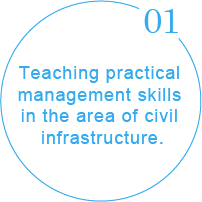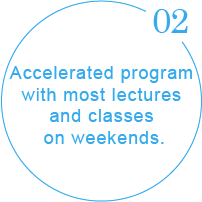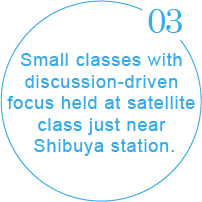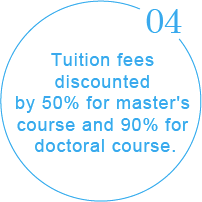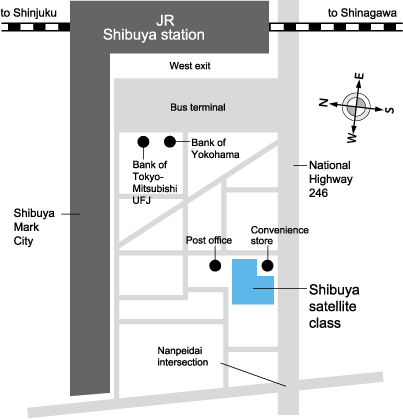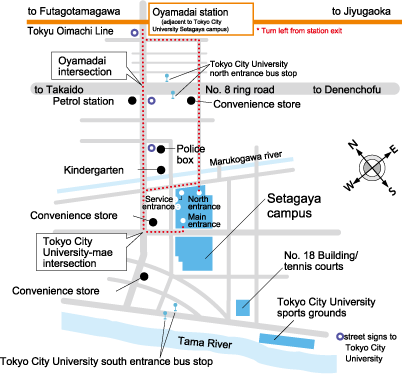Characteristics
- Systematically designed curriculum covering key management skills including planning, scheduling, execution, and maintenance
- Comprehensive examination of fundamental theories of social infrastructure including its role and purpose in society
- Weekends classes designed to accommodate busy workers, held at the conveniently located Shibuya class facility
- Small class sizes allow more time for direct interaction with instructors to develop hands-on management skills
- Master's program comprises 18 units (equivalent to nine subjects), doctoral course comprises four units(two subjects)*
- April and September commencement**
- As well as separate research-based components
- * C program available from April only
Graduate School of Integrative Science and EngineeringInfrastructure management
Practical skills in infrastructure management
The industry around infrastructure development in Japan emerged during the post-war reconstruction phase and enjoyed remarkable growth and development, particularly in terms of technical field, during the subsequent period of rapid economic growth. But in today’s world, with an increasingly emphasis on international collaboration and diversity of views, the purpose of infrastructure has shifted from a sole focus on promoting industry, towards the ideal of providing enduring social capital for the benefit of all citizens. This program covers a wide range of topics, from construction contracts and management to ICT advances such as BIM and CIM, procurement method such as PPP and PFI, and mathematical modeling techniques typically applied to challenges pertaining to infrastructure. With a strong weighting towards practical aspects of research, the program is designed to provide qualified engineers with new skills for shaping the future of society.
Infrastructure
management program
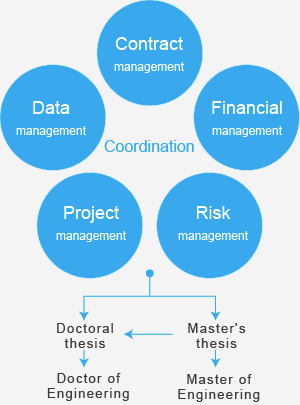
Entrance Examination
Selection criteria
Working experience
Master's program ― (1)Application documents (2)Interview
Doctoral program ― (1)Application documents (2)Interview
Applicants must have at least two years of working experience as at the point of application. The application process consists of document submission followed by an interview.
Applications close
- B program:Mid July
- C program:Mid January
- Entrance examination for September commencement:Late May
Examination
- B program:Early September
- C program:Late February
- Entrance examination for September commencement:Early July
Venue
Setagaya campus
Results released
- B program:Mid September
- C program:Early March
- Entrance examination for September commencement:Mid July
Cut-off date
- B program:Mid October
- C program:Mid March
- Entrance examination for September commencement:Early August
- Specific dates are shown in the application guidelines.
Fees and charges
Enrollment fee
¥240,000
Tuition fees(per annum)
Masters:¥1,190,000
Doctorate:¥1,190,000
Tuition fee discounts of 50% for the Master's program and 90% for the Doctoral program are available to full-time working students
who satisfy the selection criteria.



